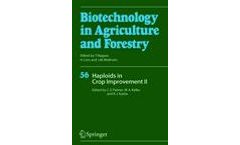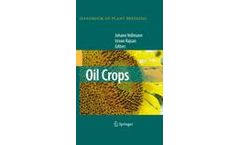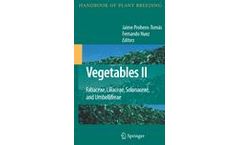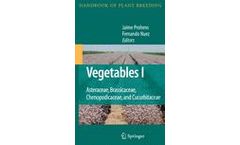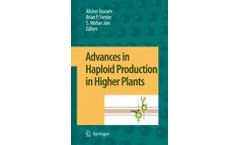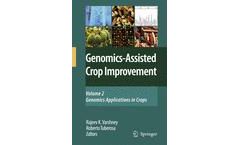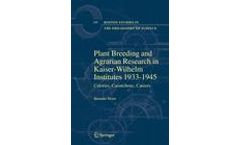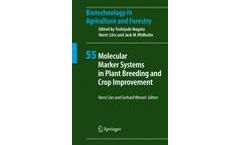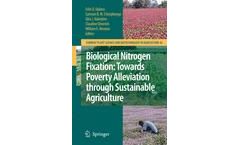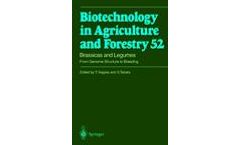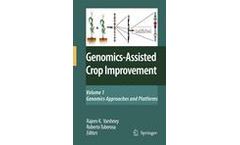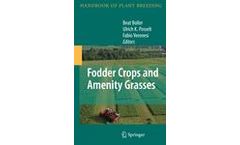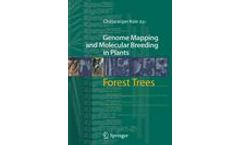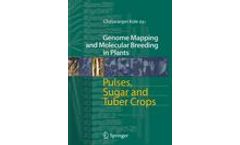plant breeding Books
-
Plant Breeding
have had their greatest economic impact in the rapid development of the science of plant ...
-
Haploids in Crop Improvement II
Doubled haploid technology is an important tool for plant breeding. It allows for significant ...
-
Quantitative and Ecological Aspects of Plant Breeding
This fourth book in the Plant Breeding Series introduces the techniques required to ...
-
Androgenesis and Haploid Plants
biology and plant breeding. This book illustrates how the advances in plant molecular and cell ...
-
Cereals
breeding. Unfortunately, applied plant breeding programs that are focused on cereal commodity ...
-
Oil Crops
The volume on oil crop breeding is the third volume in the series, Handbook of Plant Breeding ...
-
Vegetables II
This first volume of the Handbook of Plant Breeding book series is devoted to vegetable ...
-
Vegetables I
This first volume of the Handbook of Plant Breeding book series is devoted to vegetable ...
-
Breeding Tropical and Subtropical Fruits
Plant breeding has undergone a period of very rapid and significant development in recent ...
-
Virus-Resistant Transgenic Plants: Potential Ecological Impact
The introduction of novel genes into plants by genetic transformation holds great promise for ...
-
Advances in Haploid Production in Higher Plants
The discovery of haploid Datura plants in 1964 initiated great excitement in plant ...
-
Genomics-Assisted Crop Improvement
Genomics research has great potential to revolutionize the discipline of plant breeding. This ...
-
Plant Breeding and Agrarian Research in Kaiser-Wilhelm-Institutes 1933-1945
The book offers a history of the agricultural sciences in Nazi Germany. It analyzes scientific practice under the Nazi regime, Nazi agricultural policy and autarkic strategies as well as expansion policy in Eastern Europe. It also offers new insights into the Auschwitz concentration camp. It outlines the Nazi’s comprehensive nutritional and agricultural research program intended to prepare ...
-
Molecular Marker Systems in Plant Breeding and Crop Improvement
biology. This volume presents basic information on plant molecular marker techniques from marker ...
-
Biological Nitrogen Fixation: Towards Poverty Alleviation through Sustainable Agriculture
practices generally. The roles of, and advances in, plant breeding, plant molecular biology, ...
-
Brassicas and Legumes
Genome sequence studies have become more and more important for plant breeding. ...
-
Genomics-Assisted Crop Improvement
Genomics research has great potential to revolutionize the discipline of plant breeding in ...
-
Fodder Crops and Amenity Grasses
and Amenity Grasses, fifth volume in the series, Handbook of Plant Breeding, covers all these aspects. Most ...
-
Forest Trees
Genome Mapping and Molecular Breeding in Plants presents the current status of the ...
-
Pulses, Sugar and Tuber Crops
Genome Mapping and Molecular Breeding in Plants presents the current status of the ...
Need help finding the right suppliers? Try XPRT Sourcing. Let the XPRTs do the work for you

